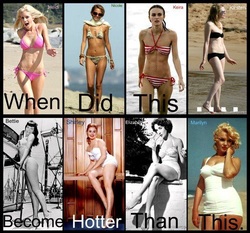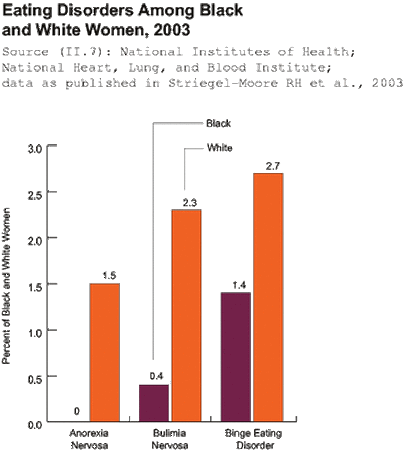Eva’s father and ex-boyfriend both comment on how she is eating. She replies that she has been eating for years. This implies she must have had an eating disorder in the past. Eva’s lack of eating was an attempt to exert control over her own body. At the same time, it was socially enforced by society and the media all around her. She wanted to look good for herself, but the definition of “good” is what society viewed as good looking, forcing us to question whether or not our choices are made based off of society's influence or from our own agency and opinion. An example of this is the way in which Eva's control over body via her eating disorder only took place because the media was encouraging her to do so. Society doesn’t have that hold on her anymore; she is a strong woman comfortable in her own body. Eva doesn’t dress up for someone, but rather for herself. When she was getting ready for lunch she dressed as she pleased and “she hadn’t bothered straightening her hair for her father’s benefit” (141).


The previous YouTube video and advertisement are of white women because statistics show that the prevalence rate of eating disorders in black women isn’t as high as the prevalence rate in white women. White women suffer from anorexia and bulimia more so than black women. In this graph, black women don’t place in the statistics of anorexia, and white women are nearly doubled than black women in the binge eating category. In the bulimia category of the graph, white women are over five times more prevalent than black women in having the disease.
Does the media affect us psychologically, to the point that one would starve themselves to look beautiful? Why do you think that black women are less likely to have eating disorders than white women?
 RSS Feed
RSS Feed